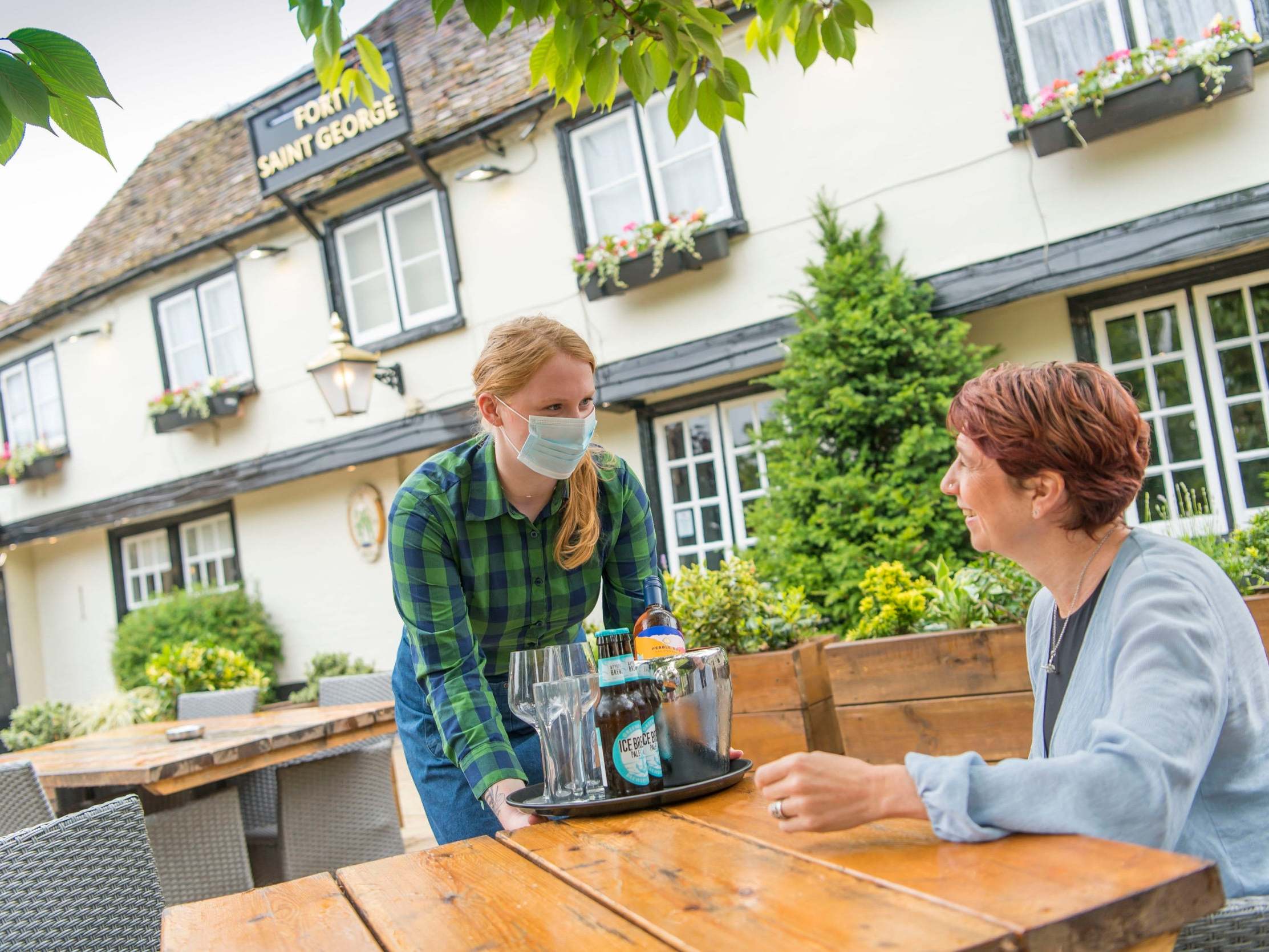How important is the UK hospitality industry – and will it be saved by the new social distancing rules?
Some fear that even with the relaxing of the social distancing rules, many businesses will still go bust and that the future of the sector is bleak. But what's the overall economic importance of our pubs, restaurants and hotels? Ben Chu looks at the numbers


Boris Johnson’s announcement that the Government will cut the public social distancing requirement from 2 metres to 1 metre has been hailed as vital for the survival of much of the beleaguered hospitality sector.
According to the industry’s main lobby group, UK Hospitality, the new requirements will allow the average pub or restaurant to run at 70 per cent of capacity from next month, rather than 30 per cent – a level that would have threatened the future of many businesses.
But just how important is the hospitality sector to the UK economy as a source of income, a provider of jobs and a generator of rising living standards?
According to the UK Hospitality trade group, the sector employs 2.9 million people.
Data from the Office for National Statistics, however, suggests a lower figure, with the ONS estimating the accommodation and food services sector directly employed around 2.5 million at the end of the first quarter of this year.
Yet even using the smaller employment number it still implies around one in 14 UK workers are in the sector.
And it has been growing fast as an employer in recent years with its share of jobs rising from 6 per cent in 1996 to 7 per cent today.
As for economic contribution, UK hospitality puts it at £130bn a year. However, the ONS reports that food and accommodation created £56bn of gross valued added in 2019, representing around 2.5 per cent of the UK economy.
That’s far lower than sectors such as finance, manufacturing and business services, reflecting hospitality’s low relative productivity per worker.
The higher estimate for the economic contribution from some sources is likely due to a wider definition of what constitutes hospitality, perhaps including conference centres and leisure-related businesses, and also including its indirect effects such as supply chain orders.
There’s no question, though, that hospitality been hit incredibly hard by lockdown.
The ONS reports that the output of accommodation and food services fell more than any other sector in the three months to May, slumping by 41 per cent.
Some fear that even with the relaxing of the social distancing rules many businesses are likely to go bust in the coming months and that the longer term future of the sector is bleak.
But Dan Tomlinson a researcher at the Resolution Foundation think tank, says that doesn’t make the case for a rapid withdrawal of official support such as the jobs furlough scheme.
“We could be looking at a shrinking of the hospitality sector if social distancing persists and the services we want to consume changes but even if we are that doesn’t mean it’s a bad idea to prop up jobs in an industry that’s declining,” he says. “It’s not a bad thing to help smooth the speed or pain of an economic adjustment.”
One of the reasons pubs, restaurants and hotels stand out in our minds when we think of the fate of the wider economy is they are highly visible. A restaurant has to be easily accessible to attract passing customers in a way that isn’t true for, say, a manufacturer or a car insurance call centre.
Pubs and restaurants are also a barometer of wider economic sentiment. When people economise because they are worried about their jobs they will generally cut back on eating out rather than on something like grocery shopping. Hospitality is also a vital component of the domestic tourism sector.
Finally, pubs also have a social role not just a purely economic one. They can act as community hubs, as reflected by the many campaigns to preserve them in the face of headwinds that were blowing long before the coronavirus pandemic.
Yet, for all that, we should beware fetishising the hospitality sector. The Resolution Foundation notes that someone is less likely to escape low pay if they work in pubs or restaurants.
The UK, of course, needs a flourishing hospitality sector for both economic and social reasons.
Yet if we want to drive up living standards for the country in the long term by creating more productive and higher paying new jobs the focus of policymakers needs to be elsewhere.
Join our commenting forum
Join thought-provoking conversations, follow other Independent readers and see their replies
0Comments